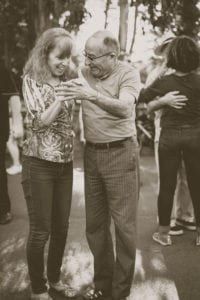A recent presentation at the 2019 American Academy of Neurology Annual Meeting reports some promising results for treating Parkinson’s Disease with regenerative cell medicine.
The study enrolled 20 participants, including 11 men, ages 45-78. All were in off state — which refers to the resurgence of symptoms due to a gradual decline in levodopa’s efficacy — and were at stage 3 or less in the Hoehn & Yahr (H&Y) scale correlating with mild-to-moderate disease severity. Stage three is considered mid-stage and is characterized by loss of balance and slowness of movement.
The promising results are below:
Results: All 20 subjects have received a single IV infusion without any adverse reactions in the first 24 hours. In subsequent follow up the most common side effect was hypertension, arthralgia, and nausea (27% for each), which was mild and transient in all cases, not requiring treatment. To date, the first fourteen patients sustained a reduction in UPDRS-III motor score (OFF state) at 12 weeks follow up.
Conclusions: Preliminary findings from this ongoing small proof-of-concept study, that allogeneic MSC infusions appear to be safe and well tolerated in subjects with mild to moderate Parkinson’s disease. Our preliminary results warrant the completion of the study with the goal of identifying an ideal, well-tolerated dose that is associated with an improvement in cognition, motor function, and disability.
The researchers reported “To date, the first 14 treated patients showed lower (better) UPDRS-III motor scores at 12 weeks of follow-up. Allogeneic MSC infusions appear to be safe and well tolerated in subjects with mild to moderate Parkinson’s,” the researchers said. Our preliminary results warrant the completion of the study with the goal of identifying an ideal, well-tolerated dose that is associated with an improvement in cognition, motor function, and disability,.”

What Are Allogenic Stem Cells And What Do They Do?
Allogenic stem cells are stem cells that come from a source besides the person’s own body. For instance most allogenic stem cell treatments come from a donated umbilical cord, placental tissue, or amniotic fluid. Where most stem cell treatments in the past decades have come from the patients’ own bone marrow or fat tissue, in the past years stem cells from sources such as umbilical cords have shown significant results.
Stem cells have the capacity to migrate to injured tissues, a phenomenon called homing. This occurs by injury or disease signals that are released from the distressed cells and tissue. Once stem cells arrive, they dock on adjacent cells to commence performing their job to repair the problem. One of the biggest factors is a stem cells ability to heal surrounding cells via a paracrine action: secreting exosomes, growth factors and other proteins into the surrounding environment. These factors help control many aspects of the healing and repair process systemically.
Stem cells help modulate the immune system and regulate inflammation which is a key mediator of disease, aging, and is a hallmark of autoimmune diseases such as rheumatoid arthritis and multiple sclerosis. Neuroinflammation is suspected to contribute to Parkinson’s Disease.
As central nervous system (CNS) research evolves, the field of regenerative medicine and stem cells offers the greatest hope for those suffering from degenerative diseases, conditions for which there is currently no effective treatment or conditions that have failed conventional medical therapy.
I have personally seen at least 1 patient improve so much with his Parkinson’s symptoms he was recorded by the doctor running and playing catch with a football in the parking lot.
For more information on stem cell, exosome, regenerative medicine and if it’s right for you call Innate Healthcare at 602.603.3118
Dr. Travis Whitney




